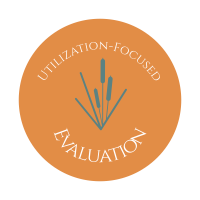By Michael Quinn Patton
At the end of each year, major dictionaries pick a “word of the year.” Two such words have special significance and implications for evaluators:
Gaslighting
Permacrisis
Gaslighting
Merriam-Webster dictionary selected gaslighting with this explanation:
In this age of misinformation—of “fake news,” conspiracy theories, Twitter trolls, and deepfakes—gaslighting has emerged as a word for our time.
A driver of disorientation and mistrust, gaslighting is “the act or practice of grossly misleading someone especially for one’s own advantage.” 2022 saw a 1740% increase in lookups for gaslighting, with high interest throughout the year.
Its origins are colorful: the term comes from the title of a 1938 play and the movie based on that play, the plot of which involves a man attempting to make his wife believe that she is going insane. His mysterious activities in the attic cause the house’s gas lights to dim, but he insists to his wife that the lights are not dimming and that she can’t trust her own perceptions.
When gaslighting was first used in the mid 20th century it referred to a kind of deception like that in the movie. We define this use as:
psychological manipulation of a person usually over an extended period of time that causes the victim to question the validity of their own thoughts, perception of reality, or memories and typically leads to confusion, loss of confidence and self-esteem, uncertainty of one's emotional or mental stability, and a dependency on the perpetrator. But in recent years, we have seen the meaning of gaslighting refer also to something simpler and broader: “the act or practice of grossly misleading someone, especially for a personal advantage.” In this use, the word is at home with other terms relating to modern forms of deception and manipulation, such as fake news, deepfake, and artificial intelligence.
English has plenty of ways to say “lie,” from neutral terms like falsehood and untruth to the straightforward deceitfulness and the formally euphemistic prevarication and dissemble, to the innocuous-sounding fib. And the Cold War brought us the espionage-tinged disinformation.
In recent years, with the vast increase in channels and technologies used to mislead, gaslighting has become the favored word for the perception of deception.
Permacrisis
Collins Dictionary selected Permacrisis as the word of the year:
“an extended period of instability and insecurity”.
I prefer the term “polycrisis” to permacrisis. Polycrisis evokes multiple, overlapping, mutually reinforcing and iterative crises: the climate emergency, the ongoing pandemic, increased inequities, the Ukraine war and deepening nuclear threat, increases in world hunger, refugees, and environmental degradation, biodiversity loss, ocean acidification, political polarization, and misinformation. But given that these trends appear to be growing and manifest as far as we can see forward, perhaps it is most accurate to think of the polycrisis as permacrisis.
Gaslighting the Polycrisis/Permacrisis
Evaluators share a responsibility to counter efforts to gaslight the polycrisis/permacrisis. Our professional associations have adopted principles that call for all evaluations to address sustainability and equity. This is a major focus of the new 5th edition of Utilization-Focused Evaluation and will be a major issue in the new Blue Marble Evaluation series we will be doing throughout 2023. We look forward to engaging with you on evaluation’s role in fighting disinformation that amounts to gaslighting the polycrisis.
Click here to watch my YouTube video on this topic.

